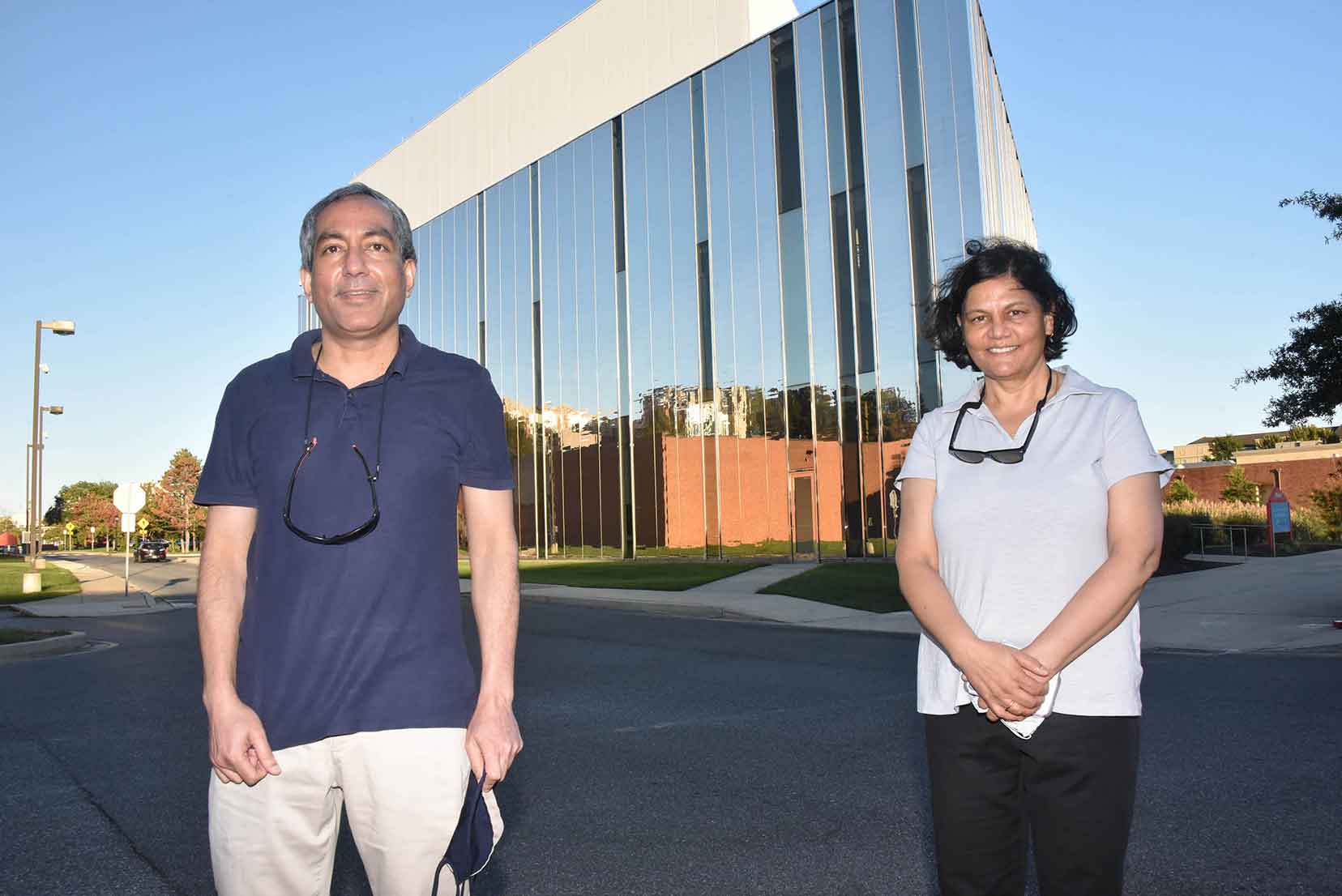
University’s Quantum Center holds kickoff meeting with DoD
Delaware State University’s DoD Center of Excellence in Advanced Quantum Sensing recently participated in its first meeting with the Department of Defense (DoD) and Northwestern University partners.
The March 2 virtual meeting was the first since the award $7.5 million DoD research grant to Del State last October. Because it was the first time the principal partners gathered – albeit virtual via WebEx – the meeting was in part a celebration of the new collaboration.
Delaware State University President Tony Allen noted that the award is the third largest grant in Delaware State history, and added important for University’s research profile and will strengthen Del State’s scholarship character.
“The goal is to build the University’s capacity from what is now a $27 million research portfolio to $35 million. It will continue to put us in the upper echelons of HBCUs providing substantive scholarships and research in this area and other areas,” Dr. Allen said. “It will also continue us on the road to be become a R1 research University, which would make us the first HBCU to have that honor.”
Dr. Saundra DeLauder said establishing a distinctive quantum research program is an exciting development for Delaware State University.
“The grant will significantly strengthen the University’s research infrastructure and provide us with a prominent edge to compete and contribute in this promising technological area of interest,” Dr. DeLauder said.
Dr. Kevin Geiss, director of science and technology in the Office of the Under Secretary of Defense for Research and Engineering, said Del State researchers’ proposal surpassed those of others submitted for the merit competition.
“The competition received 40 proposal representing 16 HBCUs and 26 minority-serving institutions. It was a very robust competition,” Dr. Geiss said. “The Department of Defense looks forward to collaborations with Delaware State University. The Center of Excellence in Advanced Quantum Sensing will provide immediate, and I believe, enduring impact on quantum science and STEM workforce.”
Dr. Baker, noted that the center will help develop Quantum-experienced workforce.
Every person that we invest in, graduates and go on to have a career where they can have a tremendous impact over a period of decades. So it is the investment in university that give us the strategic competitive advantage.
Dr. Baker added that a Del State alumna Dr. Patrice Collins (formerly Green), is employed with the Army Research Laboratory. Dr. Collins, Class of 2010, was a doctoral graduate of the University’s Applied Mathematics and Mathematical Physics programs.
Dr. Melissa Harrington, the University’s Associate Vice President of Research and director of the Delaware Institute for Science and Technology, spoke from the perspective of her discipline neuroscience. She noted quantum science’s potential for application in diagnostic imaging and for detecting magnetic fields from the brain.
She said the current method of measure brain activity is expensive, require huge tanks of liquid helium and cannot be done on moving individual. The power of quantum sensing to be able to detect those fundamental magnetic property of matter are going to allow miniature detectors to be , to be placed on the scalp to be able to record from active moving individual,” Dr. Harrington said. “It’s going to be incredibly powerful.”
Dr. Gour S. Pati, Del State Professor of Physics and Engineering, is the principal investigator and director of CoE-AQS. The co-principal investigator are the following Physics and Engineering researchers: Dr. Renu Tripathi, Professor and co-director of the center. Other investigators include: Dr. Deborah Santamore (Co-PI), Professor; Dr. Jun Ren (Co-PI), Associate Professor; as well as Dr. Matthew Bobrowski (Sr. Key Personnel), Visiting Associate Professor of Physics and Astronomy.
All investigators are faculty members from the Division of Physics, Engineering, Mathematics and Computer Science (PEMaCS) within the University’s College of Agriculture, Science and Technology.
The Center is engaged in a distinctive research program in quantum sensing and prioritizing quantum information science-related education. The Del State researchers will collaborate with Northwestern University to leverage that institution’s expertise in the area of quantum sensing. They have also planned collaborative research with DoD labs, including the Army Research Laboratory, the Naval Research Laboratory, and Harvard University.
Specifically, the Center’s research will focus on:
Realizing entanglement-enhanced quantum sensing – in the form of spin squeezing – in atomic clocks and magnetometers using cold atom platforms.
Exploring precision rotation sensing and accelerometry using a spin-squeezed, light pulse atom interferometer.
Addressing practical issues (e.g. coherence time anomaly and decoherence) in solid-state, spin-based quantum sensors, such as silicon carbide sensors and nitrogen-vacancy sensors.
The Center’s work will also provide dedicated education and training opportunities in quantum information science and sensing for students and thereby help create a diverse and capable next-generation workforce in this quantum technology arena.
“We congratulate Delaware State University for winning this award and are excited about the opportunity to work with them,” said Dr. Fredrik Fatemi, Army Research Laboratory Cooperative Agreement Manager. “We look forward to the discoveries DSU will make in quantum sensing.”
The University researchers announced last week that it has joined the IBM-HBCU Quantum Center, the nation’s first quantum education and research initiative for Historically Black Colleges and Universities aimed at driving quantum skills development and building a diverse and inclusive quantum workforce.
Del State is one of 10 newly added institutions that comprise the 23 HBCUs that have joined the IBM-HBCU Center to date. As part of the IBM-HBCU Quantum Center, the University will have access to IBM quantum computers on the cloud, as well as opportunities for joint collaboration on research, education, and community outreach programs.

